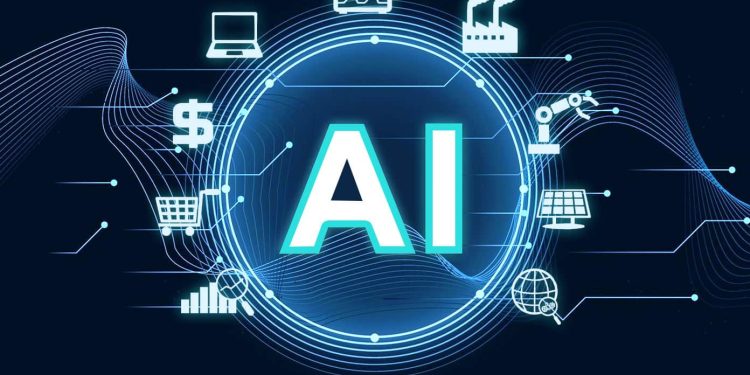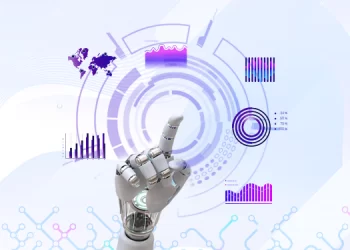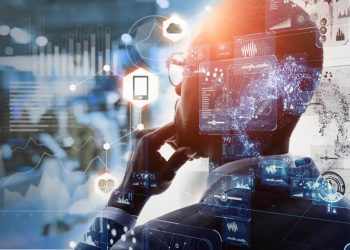Artificial Intelligence has disrupted virtually every industry. It has served as the main driver of breakthrough innovations, such as – robotics, big data, and the Internet of Things. Since the world got hit by the Covid-19 pandemic, AI emerged as the key enabler for organizations to overcome the effects of the pandemic. A recent report revealed that more than 50% of organizations adopted AI post-Covid-19 crisis, and this is just the beginning – there’s much more to come. AI technology trends, innovations, and their adoption are only expected to rise in popularity in 2021 and the coming years.
Hyper Automation
The covid-19 pandemic uncovered the value of AI by helping businesses manage their operations even during the global crisis. The pandemic highlighted the fact that Artificial Intelligence is the future of work. In 2021, we will see more sophisticated AI and machine learning applications making business processes smoother in several industries. Combining robotic process automation with artificial intelligence will trigger the next wave of digital transformation. Advanced technologies, such as – Artificial Intelligence, RPA, machine learning, and Process Mining, will be used to increase workers’ efficiency and automate processes.
Augmented Analytics
Augmented analytics combines the power of AI and ML technologies to help organizations prepare data and generate valuable insights for their businesses. As organizations move towards optimizing their workflows, more and more companies are expected to enhance their business intelligence by combining AI with machine learning.
Artificial Intelligence of Things (AIoT)
When AI is paired with the Internet of Things (IoT), it’s called Artificial Intelligence of Things. This technology allows internet-connected devices to learn from the data they collect. For example, smart office technology will be able to detect how many employees are present in the office, and it will also be able to make decisions about energy usage in the office so that energy consumption can be optimized.
No-code Artificial Intelligence
With the help of no-code AI, management and operational teams will be empowered with advanced analytical capabilities without requiring specialized data science skills. Since no specialized data science skills are required for no-code AI, it will reduce entry barriers for businesses and individuals to start experimenting with AI and machine learning.
Smart Manufacturing using AI
Several important supply chains got severely disrupted due to Covid-19. As the world prepares to get back on track in 2021, there’s an urgent need to develop more resilience and transform operations using advanced technologies. By combining AI, Machine Learning, IoT, and real-time analytics, manufacturing processes can become more efficient, agile, and resilient. Using IoT, data can be collected and then analyzed with the help of real-time analytics to find hidden patterns and uncover insights. Manufacturers can use streaming analytics to predict supply chain disruption and prevent unplanned downtime. Smart sensors and real-time quality monitoring systems can significantly reduce product recall. Besides that, powerful insights derived from AI-augmented data mining and analytics capabilities would lead to more advancements and breakthroughs, enabling the manufacturers to produce faster and better without compromising safety standards and quality.
AI-enabled Chips to Boost Performance
AI needs more processing power than non- AI functions, creating a heightened demand for more powerful hardware. Therefore, the creation of AI-chips is going to be a big trend in 2021. By 2025, AI-Enabled chips are expected to reach a revenue of US$91,185 million. Increased adoption of AI-enabled chips means that AI applications of the future will be smoother and faster than ever before.
Collaborative Interactions with AI
More and more businesses will combine AI with Robotic Process Automation to handle high-volume, repetitive tasks. The workplace will shift to a hybrid workforce environment, whereby AI-powered digital colleagues will work alongside and assist their human counterparts. For example, suppose a customer service rep doesn’t know the response to a very technical query. In that case, he/she can obtain quick and accurate responses using AI, improving the speed of customer service and thus customer satisfaction.
Conclusion
Without a doubt, the integration of Artificial Intelligence across businesses and industries is a revolution in itself, one that will continue to expand in 2021 and beyond and transform the world as we see it.







